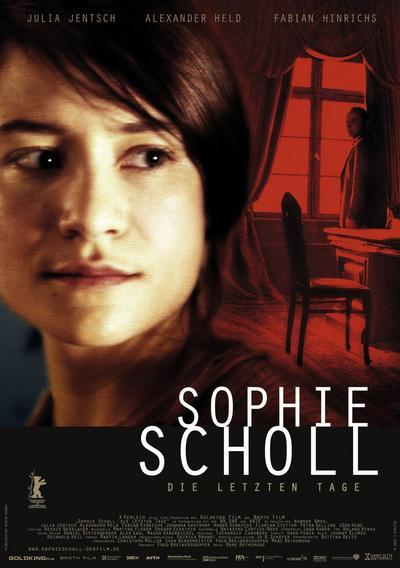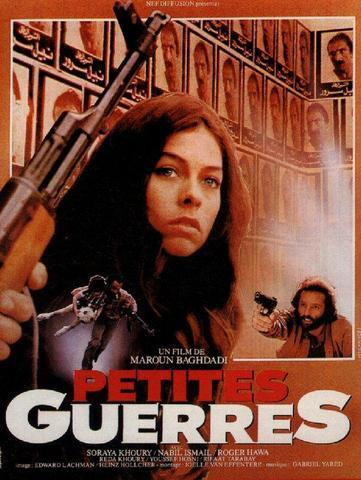A British war film released in 1997. It is directed by Michael Winterbottom. The screenplay is by Frank Cottrell Boyce and is based on the book Natasha’s Story by Michael Nicholson.Read More »
War
-
Michael Winterbottom – Welcome to Sarajevo (1997)
1991-2000DramaMichael WinterbottomUnited KingdomWar -
Harun Farocki – Bilder der Welt und Inschrift des Krieges AKA Images of the World and the Inscription of War (1989)
1981-1990DocumentaryGermanyHarun FarockiWarQuote:
The vanishing point of is the conceptual image of the ‘blind spot’ of the evaluators of aerial footage of the IG Farben industrial plant taken by the Americans in 1944. Commentaries and notes on the photographs show that it was only decades later that the CIA noticed what the Allies hadn’t wanted to see: that the Auschwitz concentration camp is depicted next to the industrial bombing target. (At one point during this later investigation, the image of an experimental wave pool – already visible at the beginning of the film – flashes across the screen, recognizably referring to the biding of the gaze: for one’s gaze and thoughts are not free when machines, in league with science and the military, dictate what is to be investigated.Read More » -
Volker Schlöndorff – Die Blechtrommel AKA The Tin Drum [Director’s Cut] (1979)
1971-1980DramaGermanyVolker SchlöndorffWarQuote:
“A country unable to mourn,” Volker Schlöndorff wrote in his journal as he adapted Günter Grass’ novel, The Tin Drum. “Germany, to this day, is the poisoned heart of Europe.” When the film premiered in West German cinemas in early May 1979, it figured within a country’s larger (and, in many minds, long overdue) reckoning with a legacy of shame and violence. Indeed, the Nazi past haunted the nation’s screens, more so than it ever had since the end of World War II. The American miniseries Holocaust aired that year on public television in February and catalyzed wide discussion about Germany’s responsibility for the Shoah. Later that month, Peter Lilienthal’s David gained accolades at the Berlin Film Festival for its stirring depiction of a young Jewish boy living underground in the Reich’s capital during the deportations to the camps. History returned as film; retrospective readings of the Third Reich by Rainer Werner Fassbinder, Alexander Kluge, Edgar Reitz, Helma Sanders-Brahms, and Hans-Jürgen Syberberg (among others) would become the calling card of the New German Cinema and bring this group of critical filmmakers an extraordinary international renown. In 1979, The Tin Drum won the Palme d’Or at the Cannes Film Festival. A year later, it would become the first feature from the Federal Republic of Germany (FRG) to receive an Oscar for best foreign film.Read More » -
Srdjan Dragojevic – Lepa sela lepo gore AKA Pretty Village, Pretty Flame (1996)
1991-2000DramaSerbia and MontenegroSrdjan DragojevicWarPlot:
At the Belgrade army hospital, casualties of Bosnian civil war are treated. In the hospital they remember their youth and the war. Two young boys, Halil, a Muslim, and Milan, a Serb, have grown up together near a deserted tunnel linking the Yugoslav cities of Belgrade and Zagreb. They never dare go inside, as they believe an ogre resides there. Twelve years later, during the Bosnian civil war, Milan, who is trapped in the tunnel with his troop, and Halil, find themselves on opposing sides, fatefully heading toward confrontation.Read More »
-
Marc Rothemund – Sophie Scholl – Die letzten Tage AKA Sophie Scholl: The Final Days (2005)
2001-2010DramaGermanyMarc RothemundWarSophia Magdalena Scholl (May 9, 1921 – February 22, 1943) was a prominent member of the White Rose non-violent resistance movement in Nazi Germany. She was convicted of treason after having been found distributing anti-war leaflets at the University of Munich with her brother Hans. As a result, they were both executed by guillotine.
Since the 1970s, Scholl has been celebrated as one of the great German heroes who actively opposed the Third Reich during the Second World War.Read More »
-
Maroun Bagdadi – Les petites guerres AKA Little Wars (1982)
1981-1990DramaLebanonMaroun BagdadiWarLebanon, 1975. How Talal, an affluent young man becomes a warlord; how Soraya, the girl he leaves behind, tries to help him in abducting a businessman; how Nabil, a press photographer deals drugs under the cover of the civil war and poses as the hero he aspires to be but is not at all…Read More »
-
Maroun Bagdadi – Hors la vie AKA Out of Life (1991)
1991-2000LebanonMaroun BagdadiThrillerWarPatrick Perrault, a photo-journalist covering the war in Beirut in the late 1980s, is himself caught up in the hostilities when one day he is picked up and bundled into a car at gun-point. Blind-folded, he is taken to an unknown location where he discovers that he is being taken hostage by Lebanese guerrillas. Robbed of his passport, stripped and forced to change into a pair of damp pyjamas, he is locked up in a cell from which there is no escape. And he is told that if he takes of his blindfold to see his captors he will be shot dead immediately. So begins his long and brutal nightmare…Read More »
-
Lucian Pintilie – Un été inoubliable AKA An Unforgettable Summer (1994)
Drama2001-2010Lucian PintilieRomaniaWarQuote:
In 1925 Romania, young Marie-Therese Von Debretsy refuses the flirtatious advances of her husband’s commanding officer. As a result, the cosmopolitan family is reassigned to a brutally bleak and dangerous outpost on the Bulgarian/Romanian frontier whereboth their relationship and humanity are severely tested.Read More » -
Roberto Rossellini – Era notte a Roma AKA It Was Night in Rome [Long ver.] (1960)
1951-1960DramaItalyRoberto RosselliniWarQuote:
In keeping with his previous film Il generale Della Rovere, filmmaker Roberto Rossellini pursues a wartime theme in this “personal epic” Era notte a Roma.
The film is set in Rome during the German occupation after the armistice on 8 September 1943.
The story concerns three Allied POWS, who escape from their camp and hide out in Rome. The trio is given shelter and aid by a beautiful young woman who deals with black market disguised as a nun, her partisan boyfriend and several other people.
The three prisoners (one is Russian, one English, one American) display a genuine warmth towards each other that probably is meant to reflect the three countries’ joint effort against Nazi Germany.
Just as the variety of Italians involved in their protection as well as in their pursuit seems to be meant to reflect the chaos and mistrust reigning in those dark days. Acts of courage alternate with acts of treachery.
For reasons that remain obscure, Era Notte a Roma was never initially given a widespread American release.Read More »








